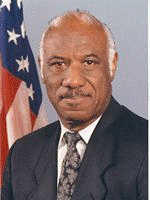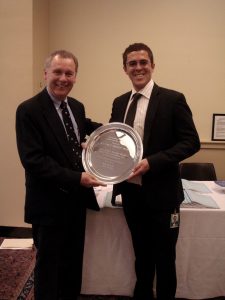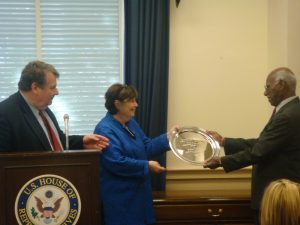The  William E. Bennett Award for Extraordinary Contributions to Citizen Science is given annually to a person, team or institution whose SENCER and other related activities have made exemplary and extraordinary contributions to citizen science. This year, we are making two awards, honoring both an individual and a team, diverse in their approach and experience, but alike in the quality of their contributions both to citizen science and to the SENCER community.
William E. Bennett Award for Extraordinary Contributions to Citizen Science is given annually to a person, team or institution whose SENCER and other related activities have made exemplary and extraordinary contributions to citizen science. This year, we are making two awards, honoring both an individual and a team, diverse in their approach and experience, but alike in the quality of their contributions both to citizen science and to the SENCER community.
Dr. Catherine Hurt Middlecamp is the director of the Chemistry Learning Center and the chair of the Integrated Liberal Studies Program at the University of Wisconsin-Madison. Cathy has been with SENCER since its inception in 2000, serving as a senior associate, a member of the National Fellowship Board, and a member of the board of advisers for GLISTEN. With Omie Baldwin, she developed the 2004 SENCER Model course, Chemistry and Ethnicity: Uranium and American Indians. In 2007, Cathy was appointed as the editor-in-chief of Chemistry in Context, a project of the American Chemical Society that teaches chemistry in the context of real-world issues. As a member of the author team, she has been the lead author for the chapters on air quality, acid rain, ozone depletion, nuclear energy, and sustainability. In addition, Cathy has received numerous teaching awards, including the University of Wisconsin System-wide Underkofler Award for Excellence in Teaching in 2004. She is a fellow of the Association for Women in Science, a AAAS Fellow, and in the inaugural class of fellows at the American Chemical Society. Cathy will receive her award during the 2011 SENCER Summer Institute at Butler University.
Dr. Jim Speer and the SENCER Student Leadership Team of Indiana State University have done tremendous work on Indiana State’s campus. The Team includes Lauren Adams, M. Ross Alexander, Dustin Blaszcyk, Chase DuPont, Elise Hobbs, Adriahnna Lehman, Emily Pugh, Dorothy Rosene, Peter Rosene, and Julie Whitaker. Jim has encouraged student involvement in all aspects of applying the SENCER approach at Indiana State. Students were recruited and joined to share their expertise with the team, from science, technology, engineering, and mathematics to public relations, political science, and law. The students have accomplished much in just one year, and continue to provide a substantive contribution to Indiana State. SENCER efforts across campus, including the Leadership Team, have benefitted from support provided by the University’s strategic plan. Jim and the Student Leadership Team will receive their award during the 2011 Washington Symposium and Capitol Hill Poster Session.
Past Recipients
In 2009, the award was established and given to its namesake in recognition for his lifetime contributions to citizen science. The recipients of the 2010 William E. Bennett Award for Extraordinary Contributions to Citizen Science were a team of educators from Butler University who have been leaders on campus and in the larger SENCER community. The honorees from Butler University were Dr. Joseph Kirsch, Professor of Chemistry; Dr. Donald Braid, Director of the Center for Citizenship and Community; Dr. Margaret Brabant, Professor of Political Science; and Dr. Robert Holm, Director of the Butler Institute for Research and Scholarship. On the Butler campus, they are transforming undergraduate STEM education in a step-by-step process that has consistently expanded their collection of courses that apply the SENCER approach. The team and other Butler colleagues have enlarged the opportunities for students and faculty at Butler to be engaged with matters of civic consequence.


 The William E. Bennett Award for Extraordinary Contributions to Citizen Science was established by the National Center for Science and Civic Engagement and named in honor of its first recipient for his lifetime contributions to citizen science. The first award was presented to its namesake at a ceremony on Capitol Hill on March 31, 2009.
The William E. Bennett Award for Extraordinary Contributions to Citizen Science was established by the National Center for Science and Civic Engagement and named in honor of its first recipient for his lifetime contributions to citizen science. The first award was presented to its namesake at a ceremony on Capitol Hill on March 31, 2009.